Shefalee Vasudev, 55, thinks people have different temperaments: that of a guitar player, footballer, or perhaps a carpenter. She herself has the temperament to listen and engage with the complexities of the human mind. A veteran journalist and editor-in-chief of digital magazine The Voice of Fashion, Vasudev’s shelves in her New Delhi home are full of books not about fashion but psychology. From Stephen Grosz’s The Life Examined to Sigmund Freud’s Interpretation of Dreams, to books by Carl Jung, Adam Phillips and Sudhir Kakar, she has been a serial collector and reader of psychoanalytic books. It’s what first prompted her to take up grief therapy to work through the death of her parents.
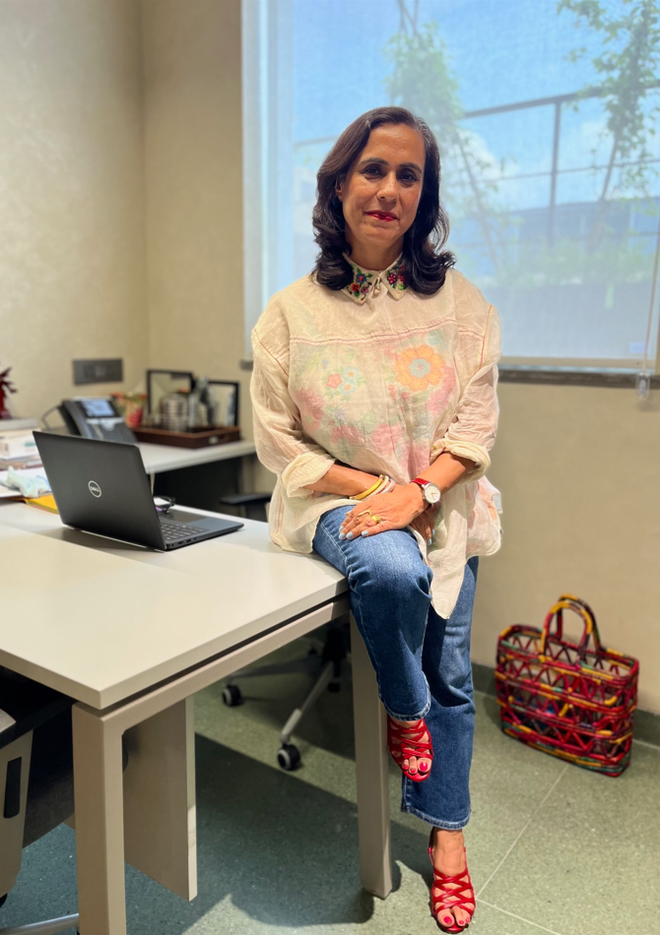
At some point, Vasudev muses, she might have given up her full time job to become a psychotherapist. But she didn’t have to — the pandemic offered the opportunity to do a number of online and hybrid courses, allowing her to start a diploma in narrative psychotherapy alongside her job. “Why narrative psychotherapy? Because it comes closest to what I know as a journalist. It combines social, political and cultural ideas in order to understand an individual. It places them amid the context of who they were born to, what were the social and political trends, who ruled the country, class and caste issues, financial and economic circumstances, inequalities, and then understands their problems. Which is what I’ve been doing as a journalist all along,” she says.
Since she started taking the course, she says her “writing has definitely become more nuanced. And I understand the inequalities of power and privilege a lot more”. Vasudev graduated three months ago, and is currently in the process of setting up her own practice, where she is seeing a few clients under the supervision of a senior. “I love my job and I still want to keep doing it,” she says about her role as editor-in-chief. In the meantime, she’s enrolled for her next course in advanced narrative psychotherapy.
Discovering a new passion
The visibility, not to mention popularity, of psychology has seen a steep rise in the last few years, particularly since the pandemic. Over the lockdowns, the number of people experiencing symptoms of stress, anxiety and depression shot up, as did those dialling psychologists to seek help. The Indian Psychiatric Society reported a 20% increase in mental illness within one week of the lockdown. Another study in the medical journal Lancet pegged this number at 35%.
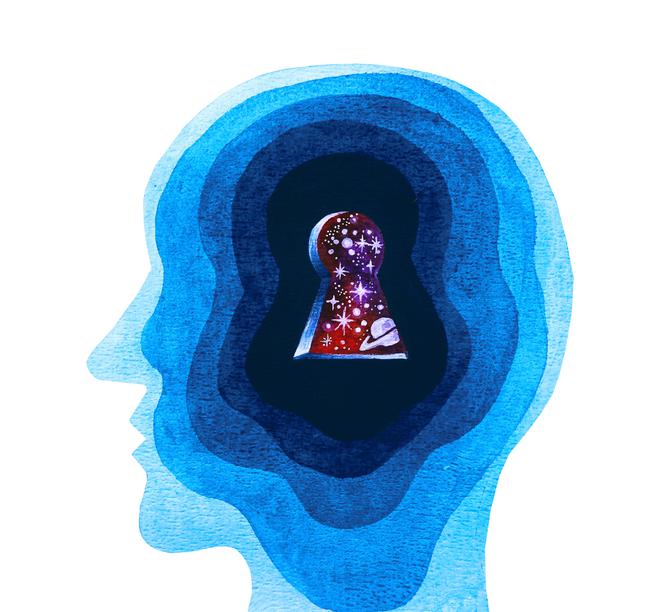
But what was interesting was that not only were more people seeking psychological help, but more were dabbling in the study of psychology, too: attending short courses, workshops and webinars on various aspects of the subject, often followed by longer graduate and postgraduate programmes. At Noida’s Amity University, the number of psychology students rose from 792 in 2018-19 to 1,552 in 2022-23. Simultaneously, the number of applications for psychology courses shot up from 2,578 to 4,051. At Indira Gandhi National Open University (IGNOU) in New Delhi, the number of students studying M.A. Psychology shot up from around 5,000 pre-pandemic to 11,000 in 2022. And unlike earlier, it turns out a large proportion of students were mid-career professionals like Vasudev, in their 30s, 40s and 50s, pursuing a fresh Masters in psychology. It begged the question: what was it that was making them pursue a completely different line of study?
For Uma Iyer, 57, based in Bengaluru, becoming a psychologist was a way of showing gratitude. Iyer started her career late in life, since she had to stay home to take care of her daughter who had cerebral palsy. At 31, she entered the corporate world, where she started in operational roles before moving to Human Relations. “I had done a Bachelor’s in literature, journalism and psychology, so when I transitioned to HR, my previous experience in psychology helped me. I was managing employee relations and grievances, which is all people-related, people-facing work,” she says.
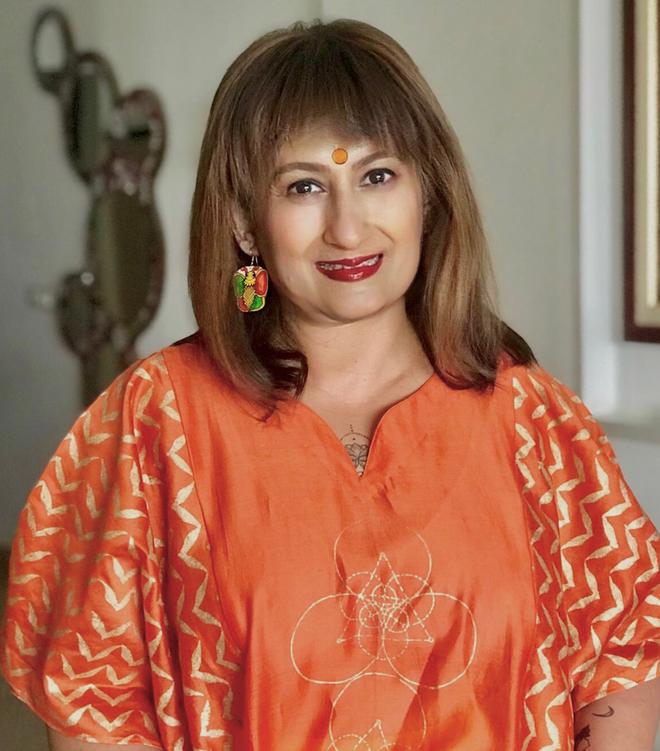
Changes were also taking place in Iyer’s personal life. She had an early divorce, suffered through the demise of her eight-year-old daughter, remarried eight years after her divorce, only to lose her second husband to a cardiac arrest. It was a lot to take in, and led to an emotional breakdown. Iyer had started therapy soon after she remarried, where her therapist helped her work through some of her marital issues. “It was during therapy that I realised that I was sitting with a lot of trauma. It helped me realise I had the strength and resilience to deal with what life had thrown my way,” she says.
Therapy helped Iyer find fulfilment in her second marriage, and after her husband passed away, she took inspiration from the movie Pay It Forward, and decided on two things. “The first was to provide an opportunity to people to come and talk about their problems, just like I myself had done. And the second was to become a therapist.” She pursued a Master’s in Counselling and Family Therapy, and set up her own practice.
Getting in touch with the ‘human’ side
Narayan Kesavan’s story is a little different. He has been in the software industry for the last 17 years, where he works as a group technical manager in product delivery in Chennai. His interest in psychology started a few years back, from, among other things, reading books by Adam Grant, a professor of organisational psychology at Wharton School of the University of Pennsylvania.
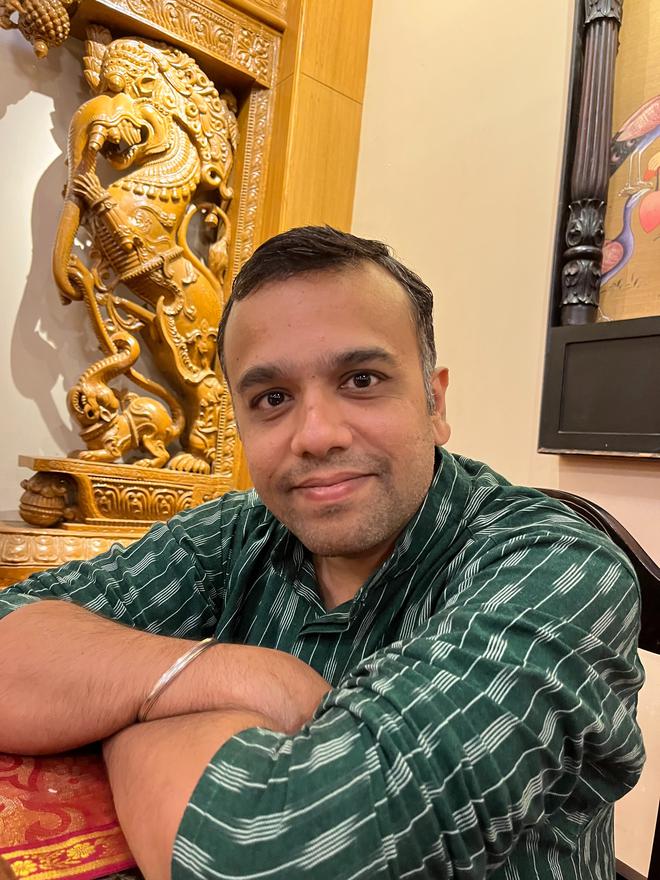
Soon, the 41-year-old realised that he was putting into practise a lot of the concepts he was reading about at work. “I was doing some behaviour modelling, some mindset-related training programmes,” he says. “That’s when I started thinking about doing psychology more professionally. I was never looking to make a full-fledged switch. I just wanted it to be something that would help me do my job better.”
Last year, Kesavan enrolled in a two-year M.A. Psychology programme at IGNOU, where he is specialising in organisational psychology, a branch that studies the behaviour of individuals and groups in an organisational setting. “The idea is to try to define, understand and predict human behaviour. And at some point, control it. Because we are ultimately in an organisation that’s running a profitable business, and we want people to behave in a particular way,” he explains. His key focus has been on designing training programmes for managers who, he thinks, are losing their human touch. “This was especially important after the pandemic, when there was a lot of personal loss, and people were carrying baggage into the office. It became important for managers to understand the day-to-day challenges of their employees, and work with them to help them cope.”
The majority of students in Kesavan’s current psychology programme, he says, are mid-career professionals like himself, looking to either supplement their existing careers with a psychology degree or switch to the profession full time. “There are quite a few from the IT background, mostly doing industrial and organisational psychology, who are looking to supplement their careers. I’ve also noticed a lot of homemakers who are taking counselling psychology. I think they are the ones looking to pursue a new career,” he says.
India needs more psychologists
According to Monika Misra, an assistant professor of psychology at IGNOU, after the pandemic, the university saw a more than 100% increase in enrolment in the psychology programme, especially at the postgraduate level. The sizeable portion is mid-careerists such as doctors, engineers, software professionals, ex-army men, nurses, housewives and media professionals. “A lot of people are realising that psychology will help them in their own careers. Doctors who are MDs, gynaecologists, even dentists are taking up psychiatry because they want to understand their patients better. There are people from the army who have shifted to psychology, to try to understand the issues and trauma they have faced,” she says.
This interest couldn’t have come at a better time: India faces a gaping shortage of mental health professionals. In 2017, the World Health Organisation (WHO) labelled it the “most depressing country in the world”, where every one in seven people suffered from some form of mental illness. To make matters worse, India has only 9,000 psychiatrists for a population of 1.3 billion and less than seven psychologists for every 10 million people.
According to Coursera, an online learning platform that partners with over 275 universities in India and abroad, there was a 230% increase in the enrollment in psychology courses in India from 2018 to 2022. Some of the most popular courses among Indians include ‘Introduction to Psychology’ (Yale University), ‘A Life of Happiness and Fulfilment’ (Indian School of Business), and ‘Psychological First Aid’ (John Hopkins University).
“The fabric of our society is unravelling,” says Bharti Jain, secretary of the Indian Psychoanalytical Society, Kolkata. “People no longer have support systems to fall back on. Families are becoming more nuclear, children are distant. If you pull on the fabric even a little, it tears. This is where the increasing demand for psychotherapy and mental health services is coming from.”
However, some experts want to sound a note of caution: that sometimes this could translate into a shallow exploration of psychology. Jain laments that people are increasingly shying away from taking the deeper, tougher courses (a typical psychoanalytic degree takes around five years). And that the rising interest is restricted to shorter degrees and certification courses that require minimal training and allow you to practise within the first year or two.
This is a flaw in India’s psychological landscape. Most psychologists in the country don’t require any official licence or registration in order to practise. Theoretically, an undergraduate degree in psychology, or a six-month certification course makes you eligible to set up a private practice. Only clinical psychologists, who specialise in more serious forms of mental illness — schizophrenia, bipolar disorder — require a licence, which is issued by the Rehabilitative Council of India (RCI). The duration of study to become a clinical psychologist is also longer than the average two-year psychology Master’s.
“For most mid-career professionals, it’s a personal journey. They go through a major life change, want to take a psychology course in order to understand it, and then, eventually, they want to share that knowledge with others.”S. SasikalaAssistant professor of psychology, Madras University
In 2021, the government passed the National Commission for Allied and Healthcare Professions Act, which mandates the setting up of a commission to ensure all healthcare institutions and professionals follow uniform standards and quality assurance. This act classifies mental health services as part of ‘allied healthcare’, and aims to regulate their teaching and practice; but there has been little information on its implementation, and most psychologists continue to operate on self-referential parameters.
“Our country is very lax when it comes to regulations around who can call themselves a counsellor or a therapist,” says Simantini Ghosh from Ashoka University, Haryana. “Think of medicine: a medical doctor has to spend countless hours of studying, practise, internships, before he gets anywhere near a patient. If we’re so careful about physical health, why not the same standards for mental health professionals?” This lack of scrutiny, she thinks, has spawned a whole pseudo-science industry, with life coaches, wellness influencers and self-styled gurus dispensing psychological concepts and help. The most well-known incident of this — when fashion influencer Santoshi Shetty offered therapy sessions for ₹1,500 on Instagram in 2020 — led to a lot of discussions on social media.
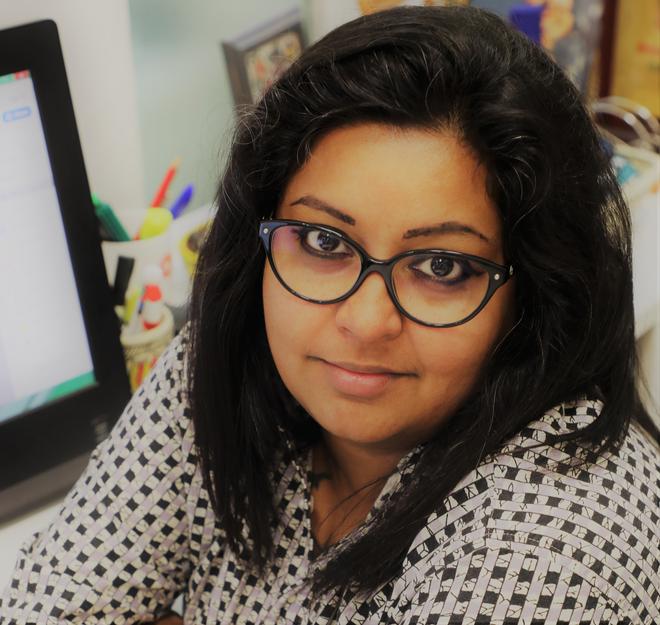
“A lot of the people [mid-careerists] switching to psychology in the last few years have been doing it after six-month, one-year, two-year counselling courses. They are not psychologists in the academic sense. These courses and the people taking them are driven more by a rising demand for lay mental health services, particularly for day-to-day issues like stress, anxiety and depression,” says Sanjeev Jain, Professor of Psychiatry at National Institute of Mental Health and Neuro Sciences (NIMHANS). “One needs to be concerned whether these short courses are meeting proper academic standards. In psychotherapy, professional ethics are sacrosanct. You should never get into a position where you’re tempted to manipulate patients, what we call transference, countertransference. Patients can become very dependent, so professional distancing is important.”
As long as these factors are kept in mind, he sees nothing wrong with the increasing proliferation of psychologists in India. After all, the RCI currently licenses only around 100 clinical psychologists each year, nowhere close to meeting the country’s mental health needs. Someone’s going to have to step in to fill the gap.

An AI-proof job?
A passion project
Many of the people the Magazine spoke to, such as Vasudev and Iyer and Kesavan, are joining the discipline with the right intentions. And similar examples are growing. Swayamprabha K.,49, completed her M.Sc in Counselling Psychology from Madras University in 2021 and is now working as a school psychologist and consultant counsellor with Chennai Counselling Services. Lamaze classes in the U.S. got this techie started on her new career. When she came back to India in 2006, she started teaching Lamaze before she realised she liked working with children and opened a playschool with three branches. As she started getting a lot of kids with special needs, she felt the need “to understand more about autism, ADHD”, and so enrolled to get her Master’s.
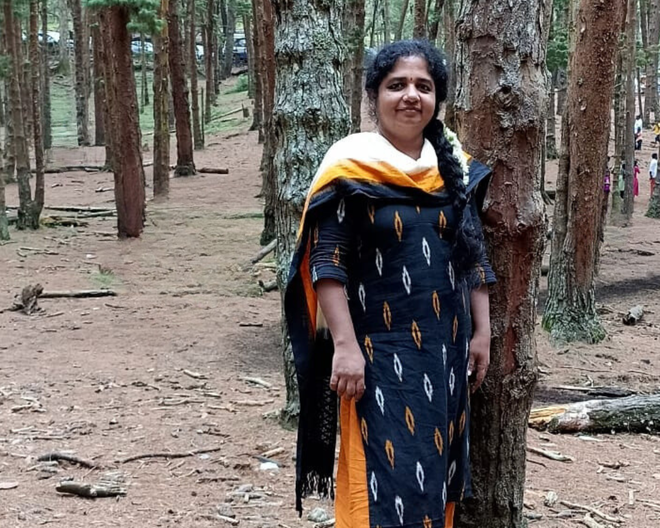
Then there’s Krishnan Madhabushi, 47, a mechanical engineer from BITS Pilani who got interested in the discipline after he attended a workshop on transactional analysis, a branch of psychology that deals with social interactions; he was surprised by how much it helped him. An uncomfortable meeting, where his project pitch to a potential client was met with cool indifference, was diffused when he addressed the issue directly. “He was surprised by me being so upfront, and told me they had had a bad experience with a previous company. He was simply projecting that experience on to me,” he recalls. After that, their entire interaction changed, and the company became a long-standing client.
After that first course, he dabbled in neuro-linguistic programming, a trauma-informed approach to psychotherapy, and most recently, mindfulness-based stress reduction. Madhabushi now runs his own practice, with around nine clients. “I have typically been in very testosterone-heavy environments — manufacturing, consulting, startups. There was little space for vulnerability and being yourself. Psychology helped me with that; it allowed me to be more emotionally literate.”
neha.vm@thehindu.co.in







